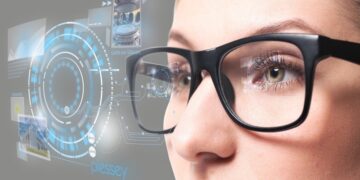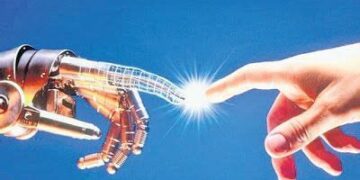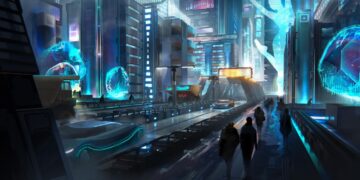In the rapidly evolving landscape of the 21st century, next-generation transformations are fundamentally redefining modern life. From technological advancements to societal shifts, these changes are influencing every aspect of our daily routines, interactions, and aspirations. This comprehensive exploration delves into the pivotal areas where transformative innovations are making significant impacts, ensuring sustainable progress and enhancing the quality of life for individuals and communities worldwide.
Artificial Intelligence (AI) and Machine Learning (ML) are at the forefront of technological advancements, revolutionizing industries and everyday activities. These technologies enable machines to learn from data, identify patterns, and make decisions with minimal human intervention.
A. Healthcare: AI-powered diagnostic tools enhance the accuracy of disease detection, personalized treatment plans, and predictive analytics for patient care.
B. Finance: Machine learning algorithms improve fraud detection, automate trading processes, and provide personalized financial advice.
C. Transportation: Autonomous vehicles and smart traffic management systems reduce accidents, optimize routes, and decrease congestion.
Internet of Things (IoT)
The Internet of Things connects everyday devices to the internet, facilitating seamless communication and data exchange. This interconnected ecosystem enhances efficiency and convenience in various sectors.
A. Smart Homes: IoT-enabled devices such as thermostats, lighting systems, and security cameras offer remote control and automation, improving energy efficiency and security.
B. Industrial IoT: In manufacturing, IoT sensors monitor equipment performance, predict maintenance needs, and streamline production processes.
C. Healthcare: Wearable IoT devices track vital signs, monitor patient health in real-time, and support remote healthcare services.
Blockchain Technology
Blockchain technology ensures secure, transparent, and tamper-proof transactions, disrupting traditional systems across multiple industries.
A. Finance: Cryptocurrencies and decentralized finance (DeFi) platforms provide alternative financial systems, reducing reliance on traditional banks.
B. Supply Chain Management: Blockchain enhances traceability, ensuring the authenticity and integrity of products from origin to consumer.
C. Healthcare: Secure patient records and data sharing improve interoperability and safeguard sensitive information.
Sustainable Energy Solutions
As the world grapples with climate change and environmental degradation, sustainable energy solutions are imperative for a resilient future.
Renewable Energy Sources
Transitioning to renewable energy sources is crucial for reducing greenhouse gas emissions and mitigating climate change.
A. Solar Power: Advances in photovoltaic technology increase the efficiency and affordability of solar energy, making it a viable option for both residential and commercial use.
B. Wind Energy: Offshore and onshore wind farms harness wind power, providing a substantial portion of renewable energy supply.
C. Hydropower: Modern hydropower systems offer scalable and reliable energy, supporting both large-scale and remote communities.
Energy Storage Technologies
Effective energy storage is essential for balancing supply and demand, particularly with the intermittent nature of renewable energy sources.
A. Battery Storage: Innovations in battery technology, such as lithium-ion and solid-state batteries, enhance storage capacity and longevity.
B. Hydrogen Storage: Hydrogen serves as a versatile energy carrier, enabling long-term storage and transportation of energy.
C. Thermal Storage: Storing energy in the form of heat or cold provides flexible solutions for industrial and residential applications.
Advancements in Healthcare
Healthcare is undergoing a transformative shift, driven by technological innovations and a focus on personalized medicine.
Telemedicine and Remote Care
Telemedicine has become a cornerstone of modern healthcare, offering accessible and convenient medical services.
A. Virtual Consultations: Patients can consult with healthcare providers remotely, reducing the need for in-person visits and expanding access to care.
B. Remote Monitoring: Continuous monitoring of patient health through connected devices allows for proactive management of chronic conditions.
C. Digital Health Platforms: Comprehensive digital ecosystems integrate patient data, facilitating coordinated and efficient care delivery.
Personalized Medicine
Personalized medicine tailors medical treatment to individual characteristics, enhancing efficacy and minimizing adverse effects.
A. Genomic Sequencing: Advances in genomic technologies enable the identification of genetic markers, guiding targeted therapies.
B. Biomarker Development: Biomarkers provide insights into disease progression and treatment responses, supporting precision medicine strategies.
C. Pharmacogenomics: Understanding genetic variations informs drug selection and dosing, optimizing therapeutic outcomes.
Education and Learning Innovations
The education sector is experiencing significant transformations, driven by technology and evolving pedagogical approaches.
E-Learning and Online Education
E-learning platforms offer flexible and accessible education, breaking down geographical and temporal barriers.
A. Massive Open Online Courses (MOOCs): MOOCs provide a wide range of courses, allowing learners to acquire new skills and knowledge at their own pace.
B. Interactive Learning Tools: Virtual classrooms, simulations, and gamified learning enhance engagement and comprehension.
C. Lifelong Learning: Continuous education opportunities support personal and professional development in a rapidly changing job market.
Artificial Intelligence in Education
AI technologies are enhancing educational experiences by personalizing learning and automating administrative tasks.
A. Adaptive Learning Systems: AI-driven platforms adjust content and pacing based on individual learner performance, fostering personalized education.
B. Automated Assessment: Machine learning algorithms streamline grading and feedback, freeing educators to focus on instruction and mentorship.
C. Intelligent Tutoring Systems: AI tutors provide on-demand assistance, reinforcing learning and addressing knowledge gaps in real-time.
Urbanization and Smart Cities
The global trend of urbanization necessitates innovative solutions to create sustainable and livable cities.
Smart Infrastructure
Smart infrastructure integrates technology to optimize urban systems, enhancing efficiency and resilience.
A. Smart Grids: Intelligent energy grids balance supply and demand, incorporating renewable energy sources and facilitating energy storage.
B. Intelligent Transportation Systems: Connected transportation networks reduce congestion, improve safety, and support the integration of autonomous vehicles.
C. Smart Water Management: Advanced water systems monitor usage, detect leaks, and ensure the sustainable management of water resources.
Sustainable Urban Planning
Sustainable urban planning focuses on creating cities that are environmentally friendly, economically viable, and socially inclusive.
A. Green Spaces: Incorporating parks and green areas enhances urban biodiversity, provides recreational opportunities, and improves air quality.
B. Mixed-Use Development: Combining residential, commercial, and recreational spaces fosters vibrant communities and reduces the need for extensive commuting.
C. Energy-Efficient Buildings: Designing buildings with energy-efficient materials and technologies minimizes environmental impact and lowers operational costs.
Transportation and Mobility Innovations
Transportation systems are evolving to meet the demands of a connected and sustainable world.
Electric Vehicles (EVs)
Electric vehicles are transforming the automotive industry, offering cleaner and more efficient transportation options.
A. Battery Technology: Advances in battery chemistry and manufacturing improve the range, charging speed, and affordability of EVs.
B. Charging Infrastructure: Expanding the network of charging stations supports the widespread adoption of electric vehicles.
C. Vehicle-to-Grid (V2G) Integration: EVs can interact with the power grid, providing energy storage and stability services.
Autonomous Transportation
Autonomous vehicles and drones are reshaping logistics, personal transportation, and urban mobility.
A. Self-Driving Cars: Autonomous vehicles promise safer and more efficient roadways, reducing accidents and traffic congestion.
B. Delivery Drones: Drones facilitate rapid and contactless delivery of goods, enhancing supply chain efficiency.
C. Public Transportation Automation: Automated buses and trains improve reliability, frequency, and passenger experience in public transit systems.
Environmental Sustainability and Conservation
Protecting the environment is a critical priority, driving innovations aimed at sustainability and conservation.
Circular Economy
The circular economy model emphasizes the reuse, recycling, and regeneration of resources, minimizing waste and environmental impact.
A. Product Design: Designing products for longevity, reparability, and recyclability reduces resource consumption and waste generation.
B. Resource Recovery: Advanced recycling technologies enable the extraction and reuse of valuable materials from waste streams.
C. Sustainable Supply Chains: Implementing circular principles in supply chains promotes responsible sourcing and reduces environmental footprint.
Climate Change Mitigation
Efforts to mitigate climate change focus on reducing emissions, enhancing carbon sequestration, and adapting to changing conditions.
A. Carbon Capture and Storage (CCS): CCS technologies capture carbon dioxide emissions from industrial sources and store them underground, preventing their release into the atmosphere.
B. Reforestation and Afforestation: Planting trees and restoring forests enhance carbon sequestration and biodiversity, contributing to climate resilience.
C. Renewable Energy Adoption: Accelerating the transition to renewable energy sources decreases reliance on fossil fuels and lowers greenhouse gas emissions.
Social Innovations and Community Development
Social innovations address societal challenges by fostering inclusive and equitable communities.
Digital Inclusion
Ensuring equitable access to digital technologies is essential for bridging the digital divide and promoting social inclusion.
A. Affordable Internet Access: Expanding broadband infrastructure provides reliable internet access to underserved and remote areas.
B. Digital Literacy Programs: Education initiatives enhance digital skills, empowering individuals to participate fully in the digital economy.
C. Accessible Technology: Designing inclusive technologies accommodates diverse needs, ensuring usability for all members of society.
Community Empowerment
Empowering communities involves fostering local initiatives, participatory governance, and sustainable development practices.
A. Local Entrepreneurship: Supporting small businesses and startups stimulates economic growth and innovation within communities.
B. Participatory Governance: Engaging citizens in decision-making processes ensures that policies reflect the needs and aspirations of the community.
C. Sustainable Development Projects: Implementing projects that balance economic growth, social equity, and environmental protection promotes long-term community resilience.
Workforce Transformation and Future of Work
The nature of work is evolving, influenced by technological advancements and shifting economic landscapes.
Automation and Job Displacement
Automation technologies are transforming industries, leading to both opportunities and challenges in the workforce.
A. Job Transformation: While some jobs are displaced by automation, new roles emerge that require advanced technical and cognitive skills.
B. Reskilling and Upskilling: Investing in education and training programs equips workers with the skills needed for the evolving job market.
C. Flexible Work Models: Embracing remote work, freelancing, and gig economy platforms offers diverse employment opportunities and work-life balance.
Remote Work and Digital Nomadism
The rise of remote work and digital nomadism reshapes traditional employment structures and lifestyles.
A. Virtual Collaboration Tools: Advanced communication platforms facilitate seamless collaboration among distributed teams, enhancing productivity and connectivity.
B. Work-Life Integration: Remote work enables individuals to balance professional responsibilities with personal interests, promoting overall well-being.
C. Global Talent Pools: Employers can access a diverse and global workforce, fostering innovation and cultural exchange.
Innovation in Communication and Connectivity
Effective communication and connectivity are essential for personal interactions, business operations, and societal cohesion.
5G and Next-Generation Networks
The deployment of 5G and next-generation networks enhances connectivity, enabling faster data transmission and supporting emerging technologies.
A. Enhanced Mobile Experiences: 5G offers higher speeds and lower latency, improving mobile applications such as augmented reality and virtual reality.
B. Internet of Things Expansion: Advanced networks support the proliferation of connected devices, driving innovation in various sectors.
C. Smart City Integration: High-speed connectivity underpins smart city initiatives, enabling real-time data analysis and responsive urban systems.
Social Media and Digital Communication
Social media platforms and digital communication tools transform how individuals connect, share information, and engage with the world.
A. Global Connectivity: Social media bridges geographical divides, fostering global communities and cross-cultural interactions.
B. Information Dissemination: Digital platforms facilitate the rapid spread of information, enabling real-time updates and public discourse.
C. Influencer Culture: Influencers shape trends, opinions, and consumer behavior, impacting marketing and brand strategies.
Ethical Considerations and Responsible Innovation
As transformative technologies advance, ethical considerations and responsible innovation are paramount to ensure equitable and sustainable progress.
Data Privacy and Security
Protecting data privacy and ensuring robust security measures are critical in the digital age.
A. Regulatory Frameworks: Implementing comprehensive data protection laws safeguards personal information and builds trust.
B. Cybersecurity Measures: Advanced security protocols and threat detection systems defend against cyber threats and data breaches.
C. Ethical Data Usage: Promoting transparency and consent in data collection and usage respects individual privacy and autonomy.
Equity and Inclusivity in Innovation
Ensuring that technological advancements benefit all members of society requires a focus on equity and inclusivity.
A. Accessible Technologies: Designing products and services that accommodate diverse needs promotes universal accessibility.
B. Inclusive Policy Making: Engaging diverse stakeholders in policy development ensures that innovations address the needs of all communities.
C. Bridging the Digital Divide: Initiatives that provide equal access to technology and education opportunities foster inclusive growth and development.
Conclusion
Next-generation transformations are undeniably reshaping modern life, driving progress across technological, environmental, social, and economic domains. Embracing these changes with a focus on sustainability, inclusivity, and ethical innovation ensures that the benefits of transformation are widely shared, fostering a resilient and prosperous future for all. As we navigate this era of rapid change, it is imperative to prioritize responsible development and collaborative efforts to address the challenges and harness the opportunities that lie ahead.














